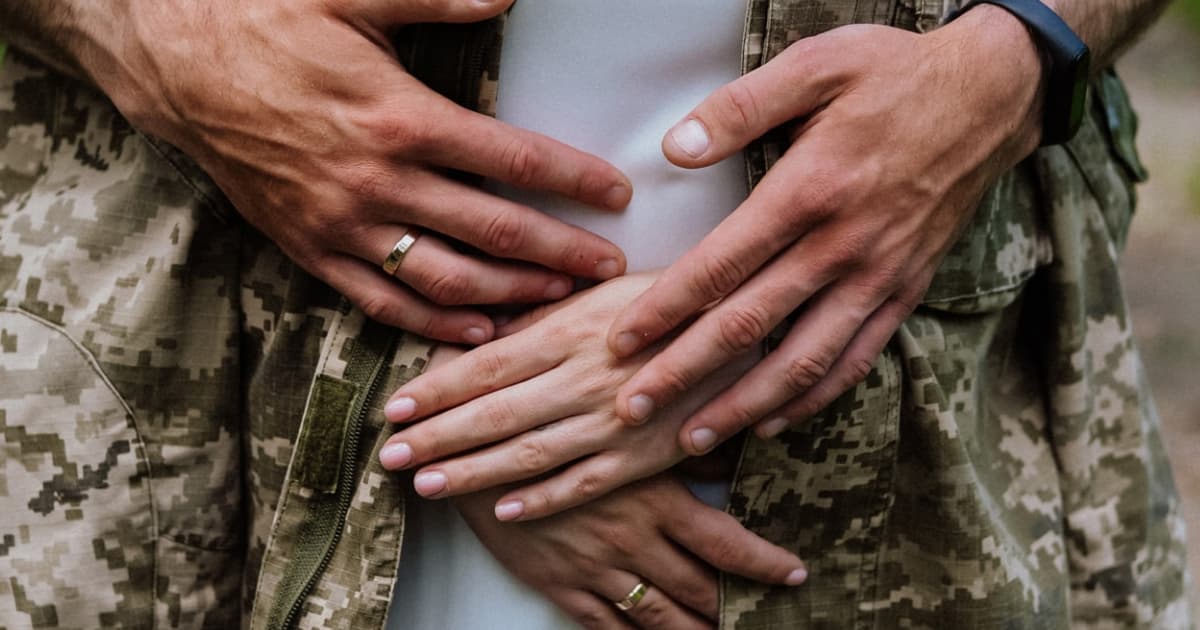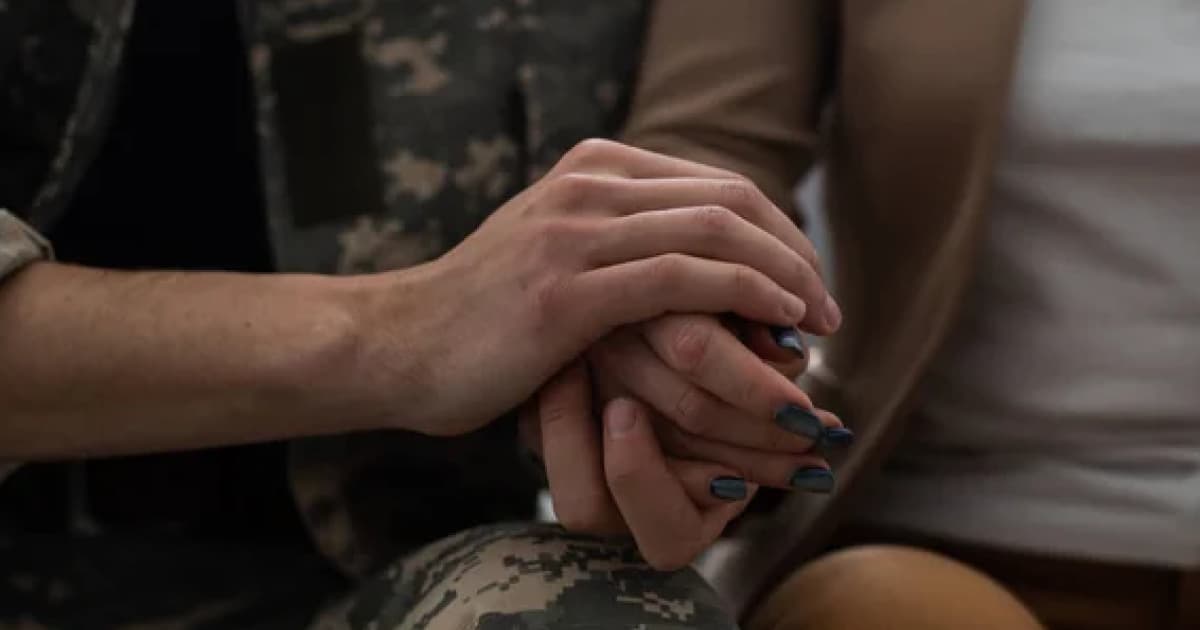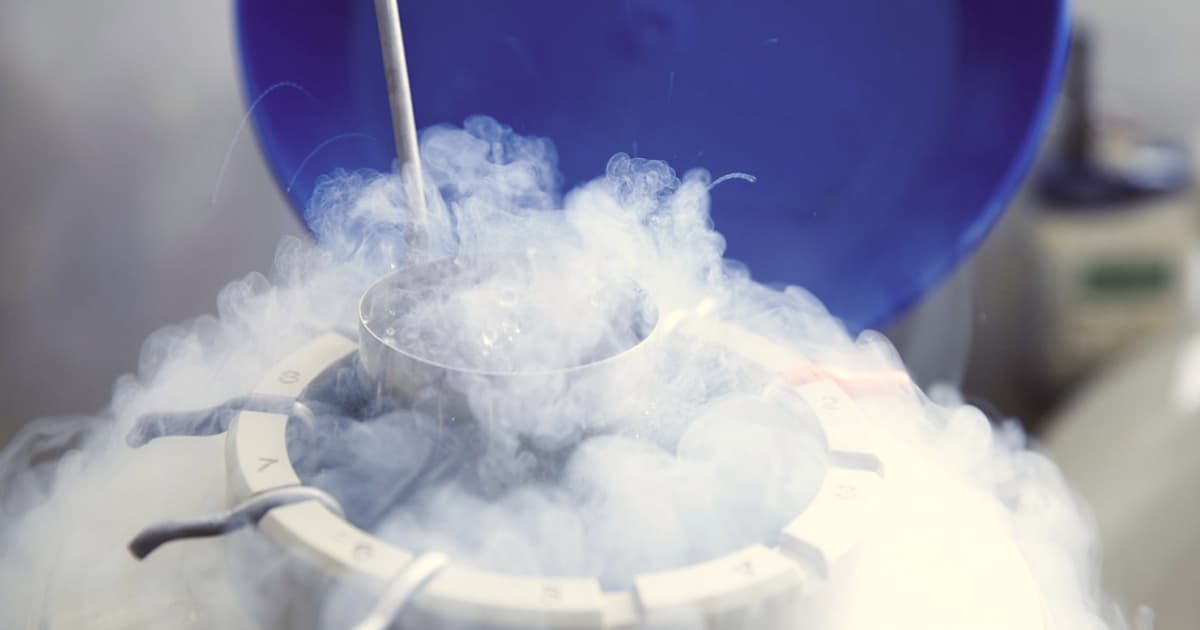Cryopreservation for the military: how to prepare and what to remember

Since the beginning of the full-scale invasion, several medical clinics have offered free cryopreservation (freezing sperm at extremely low temperatures) to servicemen and women who join the military.
Svidomi talked to embryologist Olha Maliuta about why it is essential to undergo cryopreservation, how to prepare for it, and the specifics of women's preparation.
The story of the Kyrkach-Antonenko family
Residents of Sloviansk, Natalia Kyrkach-Antonenko and her husband Vitalii, had been married for 18 years, but the couple had no children. They had discussed the topic of cryopreservation before the full-scale invasion when they were planning a large family. During the first days of the full-scale war, Natalia's husband decided to go to the fertility clinic in Sloviansk, but it had already evacuated.
Cryopreservation became even more important to us after the loss of the child I was carrying before the full-scale invasion. It was a tragedy for our family. Understanding all the war risks, my husband worried I would be left alone. But, he knew how much I loved him and how important it was for me to have children by him, Natalia says.
It was a joint decision to undergo cryopreservation. They planned to have it done when Vitalii went on holiday. Natalia's husband was sure that if he died, she would give birth and raise the children with love and care.

In August 2022, Natalia became pregnant in the usual way when she visited her husband in Sloviansk.
In November, Vitalii Kyrkach-Antonenko got a short leave and visited Kyiv to see his wife. In Kyiv, the couple attended a reproductive clinic.
My husband was granted a leave shortly before his death. On November 1, we visited a fertility clinic, and on November 9, he was killed in a battle in the Svatove direction, Natalia says.
At the clinic, the couple signed all the necessary documents. However, Natalia says that going to the notary was the most psychologically difficult moment.
"You have to sign a transfer of rights to use genetic material in case of death. It's painful, but without this document, a wife cannot have children by her husband," she says.
After Vitalii's death, his wife announced her plans to have another child.
"This became a grief support for my family and my beloved's mother and sister. Everyone understands us and plans to help us raise our daughter, who will be born in mid-May, and future children who will be born through IVF," the woman says.
How does the procedure work?
Embryologist Olha Maliuta explains that the cryopreservation procedure for men is simple: a man comes to the clinic, undergoes tests, and in case of positive results, donates biomaterial, which is immediately frozen, and then signs the necessary documents. Before that, he should abstain from sexual activity for two to five days.

The procedure is even more straightforward for those who serve in the military, as they do not need to take tests. Usually, before joining the army, men are tested for HIV and AIDS, hepatitis, syphilis and other infections.
"It's more difficult for women. It is basically the same procedure as in vitro fertilisation. It is a huge range of examinations. One has to pass many tests on the hormone level and a mandatory examination by a mammologist," says the doctor.
Preparing a woman for the cryopreservation procedure takes about a month or more.
"When a woman enters the cycle of ovulation stimulation - about 10-12 days - then she is hormonally stimulated, receives injections of follicle-stimulating hormones, and then the procedure of egg collection under general anaesthesia takes place," says Olha Maliuta.
The difference also lies in the price: for men, the procedure cost in Kyiv clinics is at least two thousand hryvnias, while for women, the amount is higher — at least two to three thousand dollars.
"For women, this is an expensive and time-consuming procedure. Women should stay close to the clinic during the stimulation period because every 3-4 days, they need to take tests to determine how the follicles are growing," explains the embryologist.
During the war, such things as hypothermia, overheating, dietary changes and stress can affect men with low sperm count. However, there are no restrictions for the procedure in men. Women must have no breast tumours, as a specific range of cancers cannot be stimulated.
"But these are minimal cases. Usually, stimulation is a safe procedure. In my practice, there have been no cases when a woman could not be stimulated," says Maliuta.
The recommendations to be followed are: do not drink alcohol and quit smoking (three months before the spermogram or cell collection). It is because spermatogenesis lasts about 72 days, and eggs take about three months to mature.
How long can biomaterial last?
The procedure of freezing biomaterial has been carried out for the last 40-30 years. The longest embryo has been frozen for 30 years. The biomaterial can be stored for a long time, but certain countries have legal restrictions.
"For example, there are countries where embryos cannot be stored for more than 20 years, and then they are donated anonymously. In Poland, embryos cannot be disposed of. There are no such legal restrictions in Ukraine," says Olha Maliuta.
Legal restrictions
In the event of a servicewoman's death, her husband or partner cannot use her biomaterial, as this would require a surrogacy service.
In Ukraine, surrogacy is allowed only for officially married couples if the woman has any contraindications to pregnancy or is physically unable to do so, the doctor explains.
But the issue of using biomaterial from male service members is also open from a legal point of view.
Now all military personnel in long-term relationships, and this is a joint decision, are advised to specify in the contract in which cases the partner can use this biomaterial, regardless of whether there is a notarized power of attorney,
says Maliuta.
In peacetime, a notarized power of attorney was required so that, for example, if a woman was on a business trip or abroad, she could use the material. But a notarized power of attorney loses its validity after a person dies, so it is necessary to specify who can use the biomaterial in case of death in a separate agreement with the clinic.

"At the moment, the law does not regulate the posthumous use of biomaterial, but if there is an official agreement with the clinic, they will meet the woman's needs," explains Maliuta.
Olha Maliuta, an embryologist, does not understand why this issue has not been resolved in Ukraine in the nine years of war.
"We still have no changes to the legislation that would allow the use of military sperm as donor sperm. However, this is allowed in some countries, such as Israel," she says.
Maliuta also believes that Ukraine has strange requirements for sperm and egg donors. In particular, it is mandatory that this person has already had a healthy child.
"This is not how it works in the world. If a woman comes to the clinic and needs sperm donation, she is ready to go for donor sperm that does not have all the tests, as it happens during a regular conception," she says.
Due to a large number of requirements for sperm donors, as well as the prejudice against women who donate, it is unpopular in Ukraine. A single woman in Ukraine can legally come to a clinic and receive a full range of services.
Can I refuse the material later?
If the client decides not to use the biomaterial, they can write an application for disposal or anonymous donation.
Also, according to the embryologist, in the context of a full-scale war in Ukraine, it would be advisable to create a sperm and DNA bank.
"In the first days of the full-scale invasion, there were a lot of talks about why the best people were dying and that it would be advisable to create such a bank to preserve the gene pool. But then these conversations quickly died down," she says.
It is physically possible to do this, but there are legal restrictions. From her medical practice, Olha Maliuta knows that there are a large number of women who need donations.
In the future, the number of single people and alternative types of families will increase, so why not provide them with the opportunity to have children?
she says.
On 21 March, the parliament supported in the first reading a draft law to create state guarantees to preserve the possibility of biological fatherhood and motherhood for defenders in case they are injured and their reproductive functions are affected.


